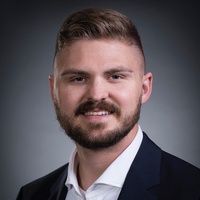In the world of real estate, most people visualize pristine suburban single-family homes or luxurious condos, but a whole market exists in the land of the dilapidated—that is, the rundown motels and hotels that dot our highways. In this episode, we dive into the innovative and bold approach taken by Kevin Kennedy, a seasoned real estate investor who has transformed his career by focusing on converting old motels into affordable living spaces. This niche not only allows for generating significant returns but also addresses another pressing issue: the acute shortage of affordable housing in many regions.
Kevin shares his journey, starting with his unrelated entry into the business world via merchant banking and mobile payment solutions. It was during this time that he learned about residual income, a concept that fascinated him and would later influence his real estate decisions. His first foray into real estate was not without its challenges; in fact, he vividly recounts a humorous yet horrifying incident where he found himself in a courtroom due to a snake that went missing from a tenant’s apartment. This event, which led to his appearance on Judge Judy, inadvertently played a role in shaping his understanding of tenant rights and responsibilities—a valuable lesson for any landlord.
By leveraging his interest in properties that are “mismanaged” or poorly maintained, Kevin recognized that the real value often lies in the potential for rehabilitation. He speaks passionately about how many of these two-story motels can be bought at a fraction of their potential value, often around $50,000 per door. What’s truly compelling is how, after investing in renovations, these properties can appreciate significantly. Indeed, this strategy allows him to convert spaces that most people overlook and is particularly poignant given the increasing need for affordable housing solutions nationwide.
As he explains his conversion process, he highlights the practical aspects, such as zoning laws and some of the necessary renovations, which often involve turning motel rooms into functional apartments. With construction costs being lower than what many invest in traditional single-family homes, he believes this model has substantial potential for growth. This approach not only benefits him as an investor, creating profitable and sustainable real estate but also serves a vital purpose of providing affordable housing in over-saturated markets.
Throughout our conversation, Kevin also touches on the regulatory landscape and the importance of establishing relationships with local municipalities. Understanding zoning regulations is critical in his field, as it can greatly enhance or inhibit the potential to carry out property conversions. Kevin’s strategy involves preemptively engaging with local authorities to get a sense of how easily a property can be redeveloped. Such proactive steps position him favorably in negotiations and ultimately lead to smoother transactions.
The discussion reveals much about the unique challenges that come with real estate investing, particularly in unconventional niches. Investors must be equipped with not only financial savvy but also with thorough knowledge of the local market and the dynamics surrounding tenant needs and the value they bring to a community. Kevin provides numerous insights into managing contractors, the nitty-gritty of property management, and even the importance of running a risk assessment before diving into a new project.
Amid humor and anecdotal tales of his past experiences, the message comes through clear—you don’t need to follow conventional paths to succeed in real estate. By thinking outside of the box and being open to unconventional investments, it’s possible to not only carve out significant profits but also create a lasting positive impact on communities in need. Kevin’s philosophy resonates in a time when affordable housing is more critical than ever, sparking crucial dialogue about how every investor has the potential, or even responsibility, to make a difference through thoughtful real estate investing.
